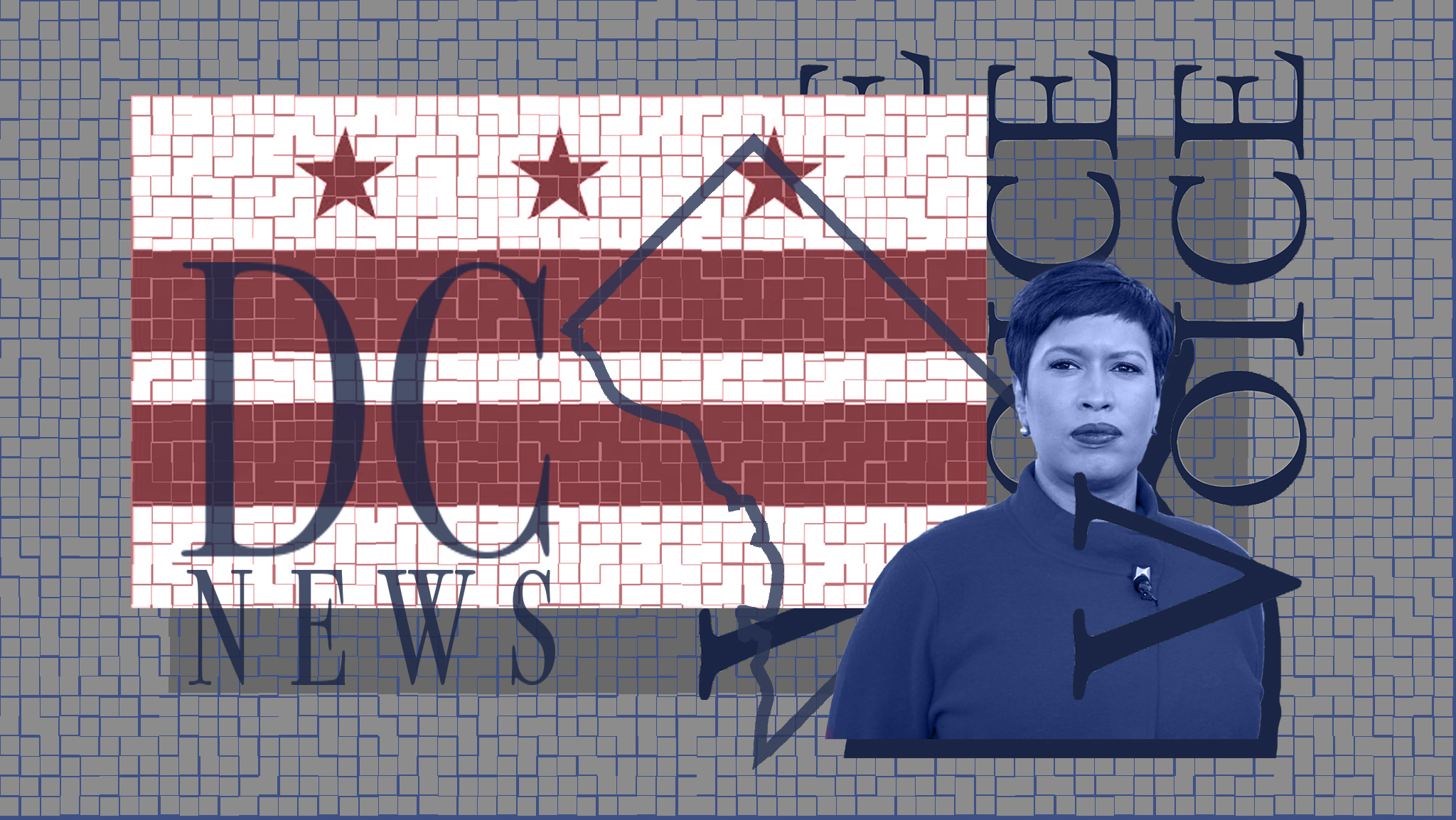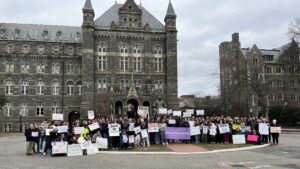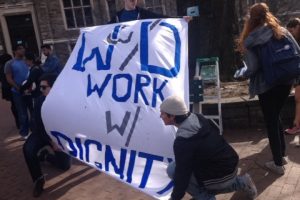After nearly four years of hard-fought negotiations, professors at Howard University are seeing the beginnings of positive change in their labor relations with the university administration.
Members of the Service Employees International Union (SEIU) Local 500 professors’ union went into final talks with Howard University regarding contract renegotiations on March 22 and approved a union contract during the first week of April. Leading up to these talks, professors at Howard had been called to strike that week if the university continued to bargain in bad faith. The same union also represents Georgetown’s adjunct faculty.
Tuesday’s negotiations came after over three years of rising frustration and disillusionment with the way Howard’s administration had been treating its non-tenured and adjunct professorial staff. Despite their passion for their work, many professors felt that the administration’s disrespect towards them had gone on for too long. Dr. Aisha Bonner Cozad, adjunct professor in the school of social work since 2014, said the proposed strike would be a last, but ultimately necessary, measure if the university continued to rebuff their demands.
“We come because, for many of us, this call to educate is more like a vocation. So to step away from that, to say that I am going to turn my back on this thing that’s important to me, is painful,” Cozad said.“However, if we continue to let the university treat us like a doormat, they will continue to.”
For many professors, the university’s mistreatment had forced them to take on additional course loads and extra jobs in order to comfortably support themselves. Prof. Sean Pears, a full-time non-tenured lecturer in the English department at Howard, took up teaching six courses in the fall semester in hopes of making a living wage, a feat he said took a heavy toll on himself and his classroom performance.
In addition to calling for a raise in their salaries, Howard’s non-tenured and adjunct teaching staff also aimed to improve their overall treatment at the university. For years, many of these professors faced anxiety-inducing job insecurity as they had to reapply to their positions at Howard annually, making consistent employment precarious. Despite teaching nearly 2,000 courses a year and setting a strong educational foundation for their students across many disciplines, Howard continued to treat its adjunct and non-tenured faculty as only temporary workers, according to Cozad.
“We are essential to getting the job done, but we are not treated like essential workers,” she said.
SEIU and the professors it represents have received unwavering support from students, alumni and even other faculty members. Cozad believes that this overwhelming show of support will be instrumental in the professors’ negotiations with the university as it will help to convey how serious they are on the matter.
Support from students especially has been very impactful during this time. Both Cozad and Pears shared how student protests against improper housing conditions in the fall had acted as an inspiration and showed how powerful unity could be in effecting change within the university community. Many students, like Erica England, head of an Afro-Socialists YDSA chapter (Young Democratic Socialists of America) at Howard, identified with elements of the faculty advocacy.
“A lot of the struggles that students face specifically at Howard, faculty are also facing a lot of those same struggles,” England said. “To know that they are also dealing with some of the same struggles as students, it’s important that we unify and work to make Howard better.”
Many student organizations, such as the Claudia Jones Club for Political Education and Howard’s YDSA chapter have also continued to actively support the professors in their efforts. Aaron Booe, a sophomore at Howard and chair of the Claudia Jones Club, shared how his organization alongside others worked with the SEIU Local 500 to stage a demonstration outside of the school’s administration building to show support for faculty.
Beyond the results of the negotiations, Booe believes that students should continue to show their support of faculty as well as maintain awareness of the social and political climate of the university. They believe that organizations such as the Claudia Jones Club have a responsibility to continue educating their peers and acting in a supporting role to the primary efforts being made by the unionized professors.
“I think the role of students is mostly to provide support to these movements, not so much lead them or anything like that, but essentially contribute to these movements in the best ways that they can,” Booe said.
Leading up to Tuesday’s negotiations, professors hoped that the overwhelming support that they were receiving would sway the university’s decision in their favor. At the same time, they were not expecting immediate, large-scale change.
“The reality is that this negotiation is not going to get us where we want. It’s going to hopefully get us closer. But when you’re trying to make up wage gaps, that usually doesn’t happen all at once,” Cozad said.
In the early hours of the morning on March 23, Howard faculty were able to reach an initial resolution with the university’s administration. On April 5, the adjunct and non-tenure track faculty ratified a new union contract set to expire in 2024, according to a union press release. The contract includes a number of improvements, including: a 24 percent average increase in full-time teaching faculty pay, more stability and the creation of a professional development fund. The contract must now be ratified by the university administration.
“With the power of collective bargaining and a union contract, the adjunct and non-tenure track faculty of Howard University have won improvements that will help to keep them in the profession they love and to continue serving academic excellence for years to come,” the press release read.
Correction: This article has been updated to reflect the most recent state of the union’s contract negotiations.





